

Project schedule management is a vital part of project management. It ensures that the project is completed on time and achieves the expected results within the budget. This article will introduce in detail how to manage the project schedule, including making plans, monitoring progress, responding to changes, and using Tools and techniques to optimize processes.
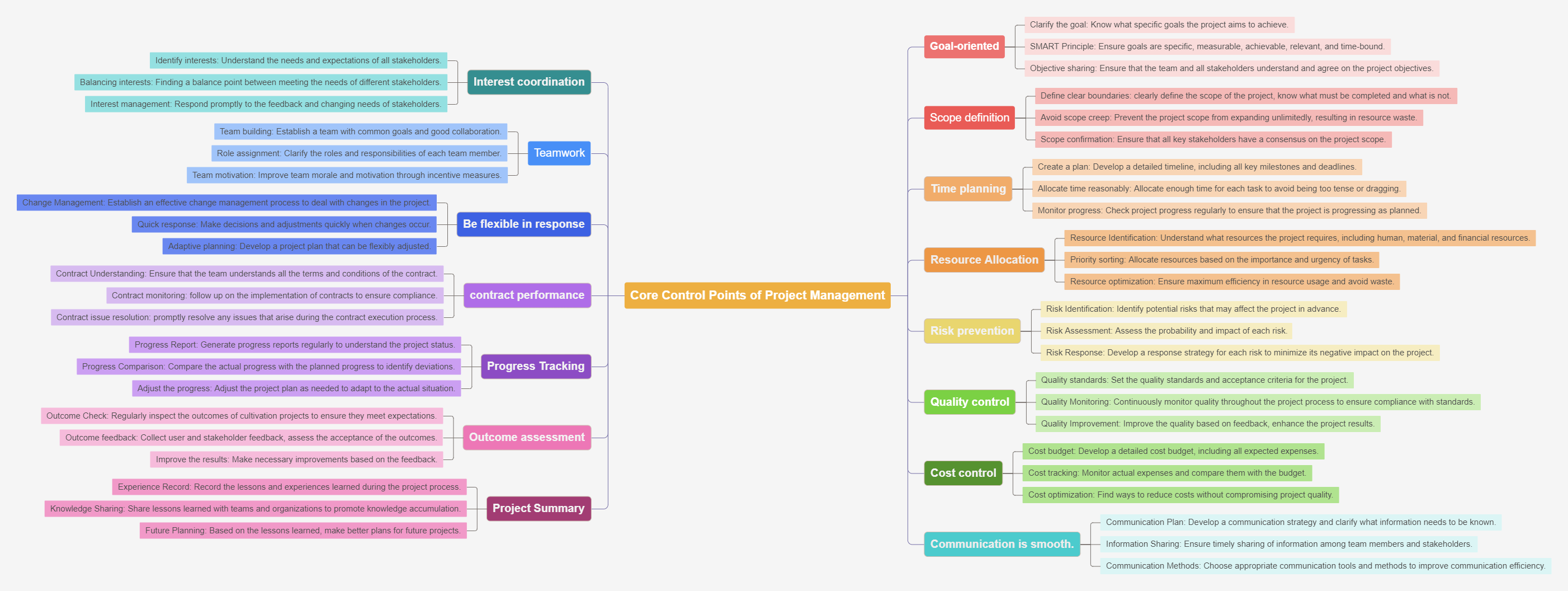
Project Management Core Control Points | Click here to use directly
Before starting a project, it is important to clarify the goals and scope of the project. Clear goals and scope can help the team understand the purpose and expectations of the project and reduce time delays caused by scope changes.
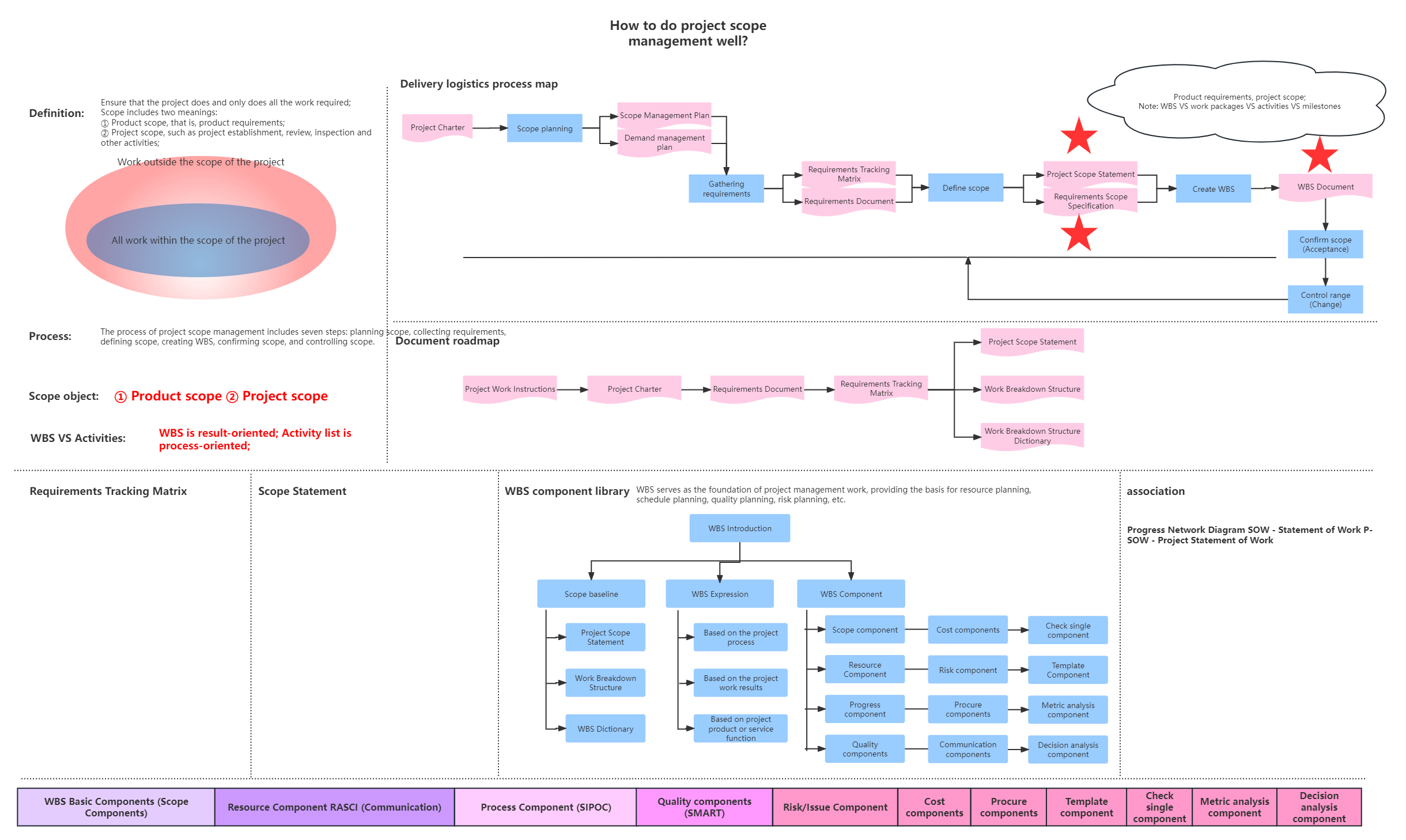
Project Scope Management | Click here to go directly
· Define project goals : Project goals should be specific, measurable, achievable, relevant, and time-bound (SMART principles). These goals should be aligned with the company's strategic goals to ensure that the project's outcomes have real value to the organization.
· Develop a project scope statement : The project scope statement should describe in detail the project's deliverables, work content, and what is not included. This helps team members and stakeholders understand the boundaries of the project and avoid scope creep.
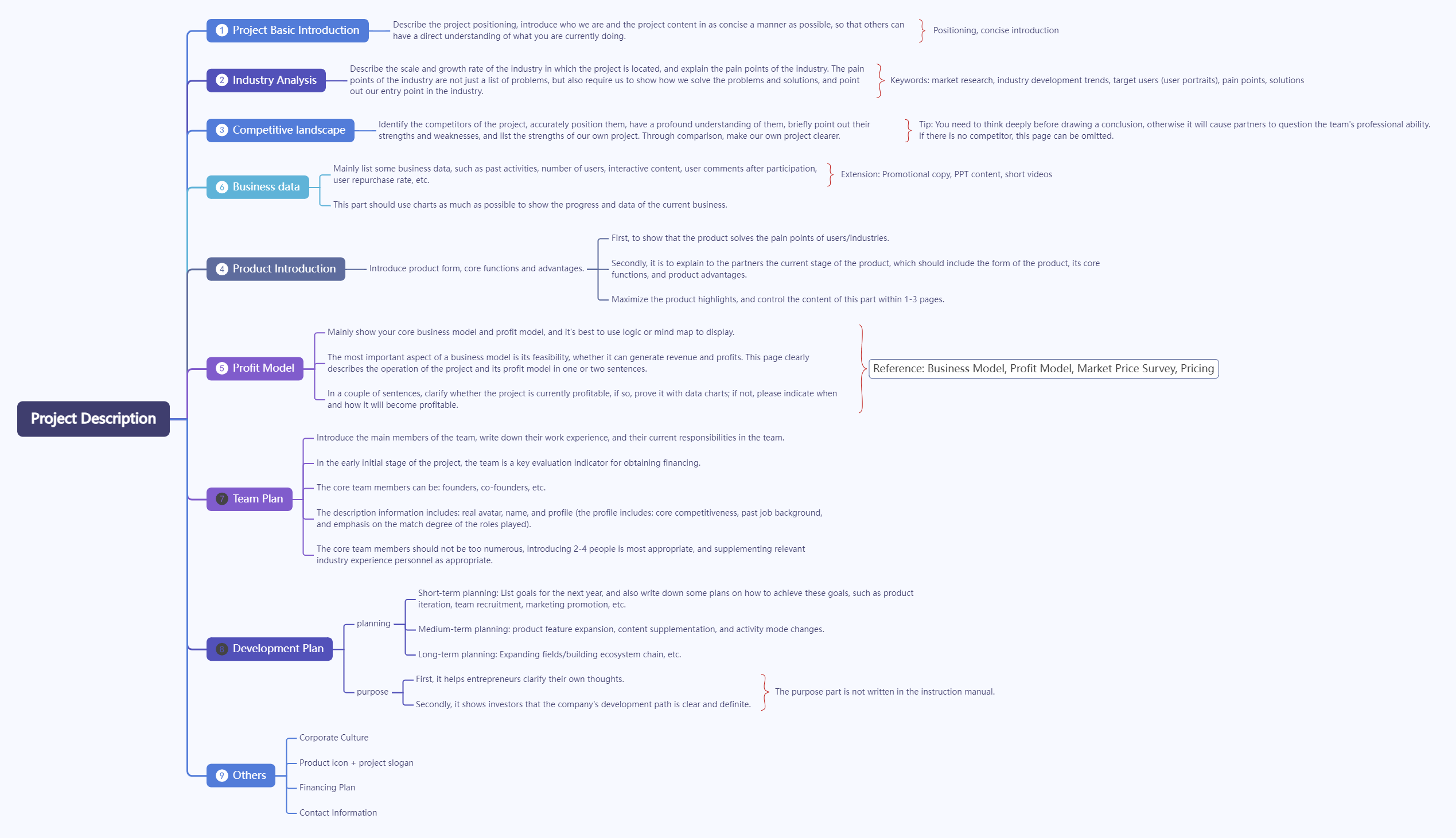
How to write a project description | Click here to use it directly
The project plan is the basis of project schedule management, which includes all tasks that need to be completed, resource allocation and time arrangement.
Task Breakdown Structure (WBS) : Break down the project into smaller manageable tasks. Each task should have a clear start and end date and be as specific as possible to facilitate tracking and management.
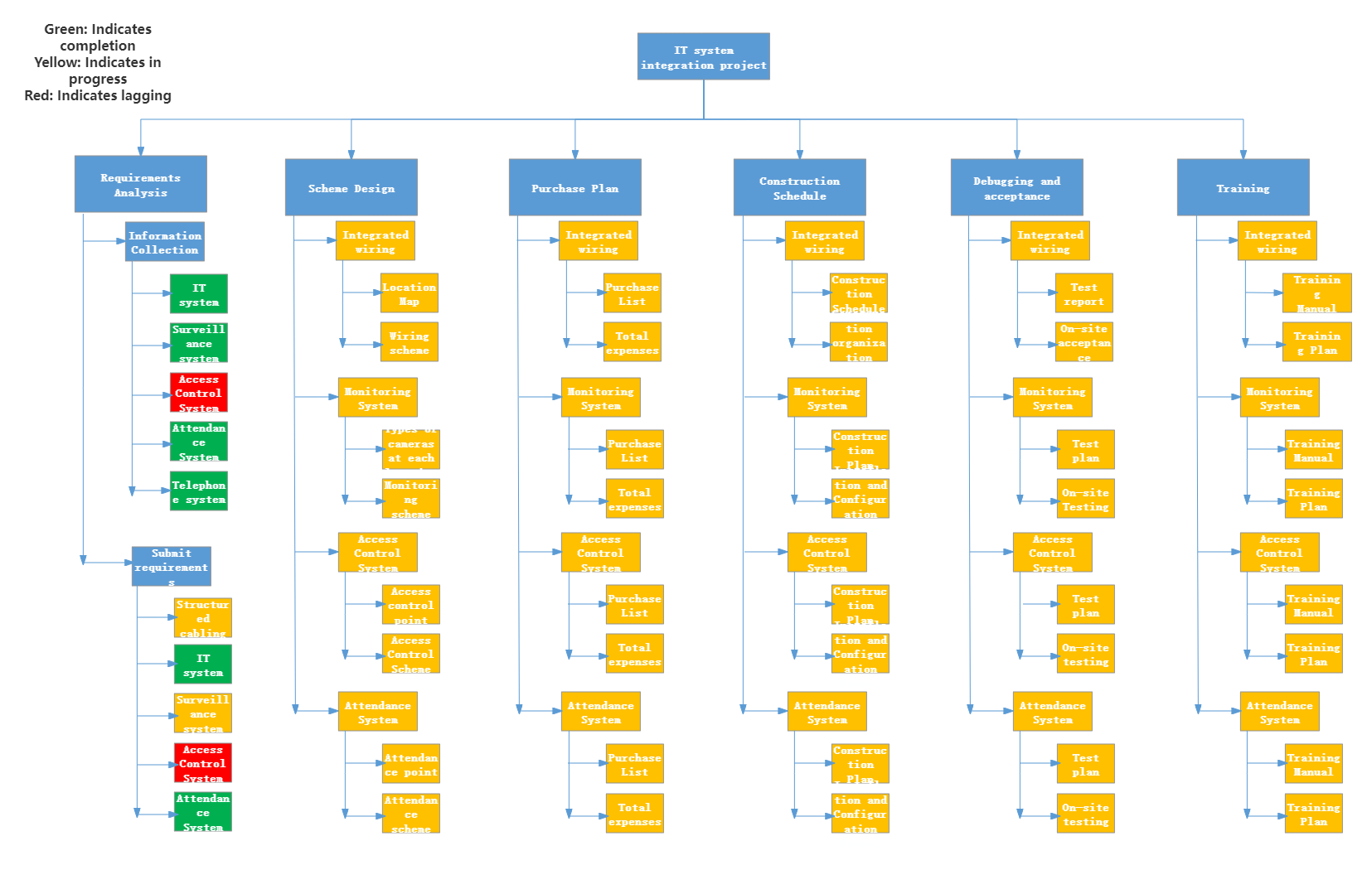
Project WBS | Click here to use it directly
Gantt Chart : Use Gantt Chart to visualize project plans and show the dependencies and timing between tasks. Gantt Chart is a very commonly used tool in project management, which can intuitively display the project progress.
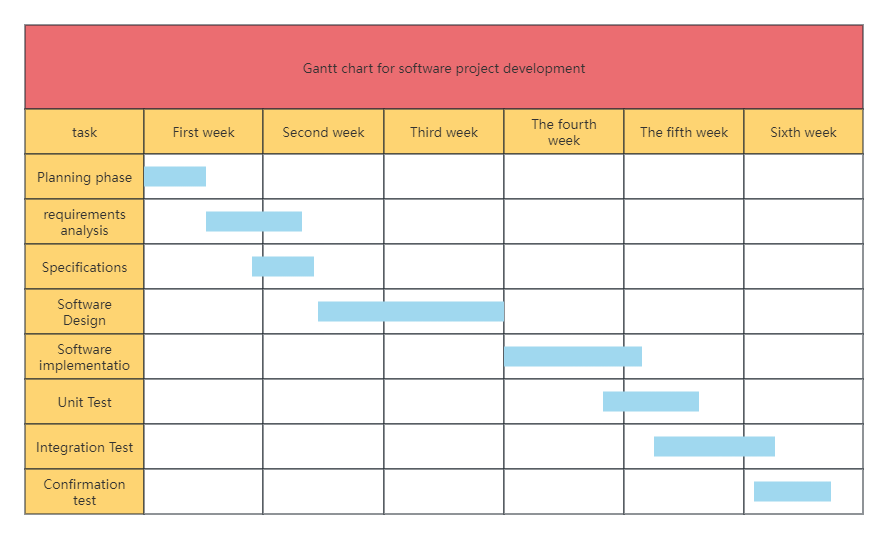
Software Project Development Gantt Chart | Click here to use it directly
Critical Path Method (CPM) : Identify the most important task path in the project and ensure that these tasks are prioritized. Any delay on the critical path will affect the completion time of the entire project.
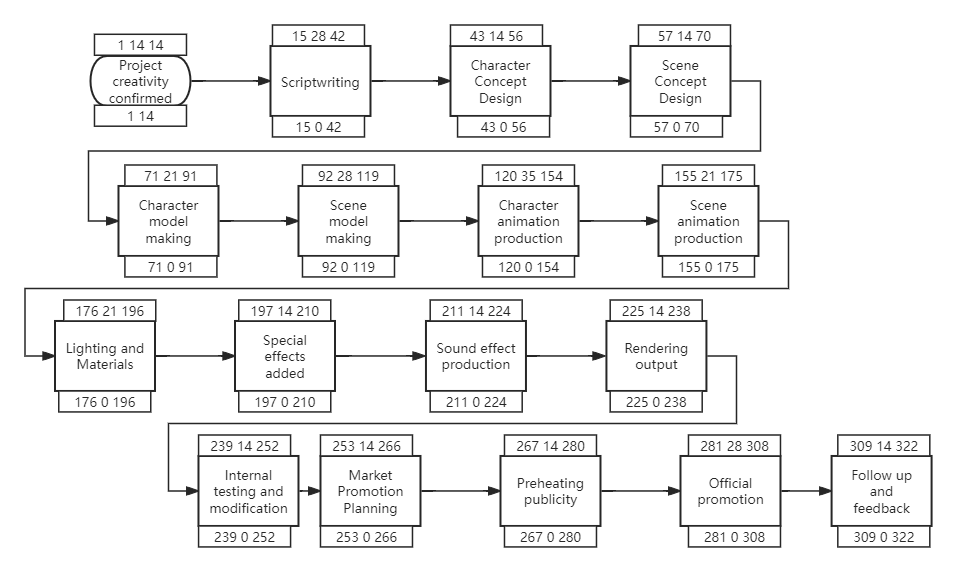
Critical Path Diagram - Basic Flowchart | Click here to use it directly
Effective resource allocation and clear responsibilities are key to ensuring that the project progresses as planned.
Resource allocation : Allocate human, material and financial resources according to task requirements. Ensure that resources are used optimally and avoid waste and over-allocation of resources.
Responsibility Matrix : Use the responsibility matrix (RACI matrix) to clearly identify the person responsible, executor, consultant, and informed person for each task. This helps avoid unclear responsibilities and overlapping tasks, and improves team collaboration efficiency.
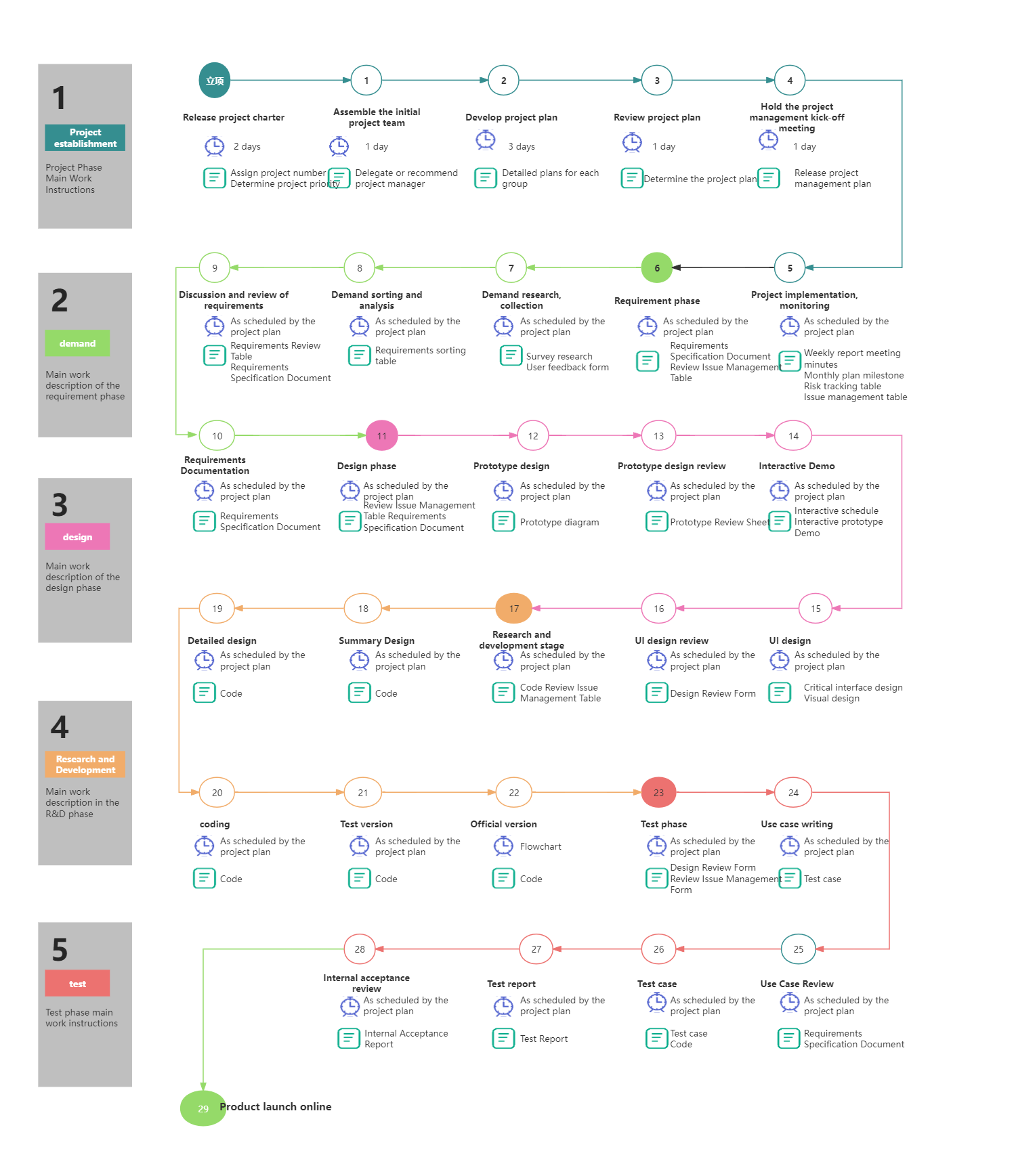
· Software Project Development Management Process | Click here to use directly
The key to project schedule management is to continuously monitor the progress of the project and take timely measures to correct deviations.
· Progress Report : Generate progress reports regularly to compare actual progress with planned progress and identify differences. Progress reports should record the completion status and problems of each task in detail.
Milestone review : Milestone reviews are conducted at key points in the project to ensure that the project is progressing as expected. Milestone reviews can help identify bottlenecks and risks in the project and adjust the plan in a timely manner.
· Change management : Establish a change management process, evaluate the impact of changes on the project schedule, and develop corresponding adjustment plans. The change management process should include four steps: application, evaluation, approval, and implementation of changes.
Modern project management software can greatly improve the efficiency and accuracy of project schedule management.
· ProcessOn : A professional drawing tool that supports team collaboration and helps teams track progress and complete tasks. ProcessOn supports task decomposition and assignment, and provides a variety of drawing functions and rich project template resources.
Microsoft Project : Powerful project management software for planning and controlling complex projects. It provides detailed planning and progress tracking tools and supports multi-project management and resource sharing.
Identifying and managing risks in a project is a key factor in ensuring project progress.
· Risk identification : Conduct risk assessment regularly to identify risk factors that may affect the project progress. Risk identification can be done through brainstorming, expert interviews, and historical data analysis.
Risk analysis : Analyze the likelihood and impact of each risk and prioritize high-risk factors. Risk analysis can use qualitative and quantitative analysis methods, such as probability-impact matrix and Monte Carlo simulation.
· Response measures : Develop a risk response plan and clarify the response strategy when risks occur. Response strategies include risk avoidance, mitigation, transfer and acceptance.
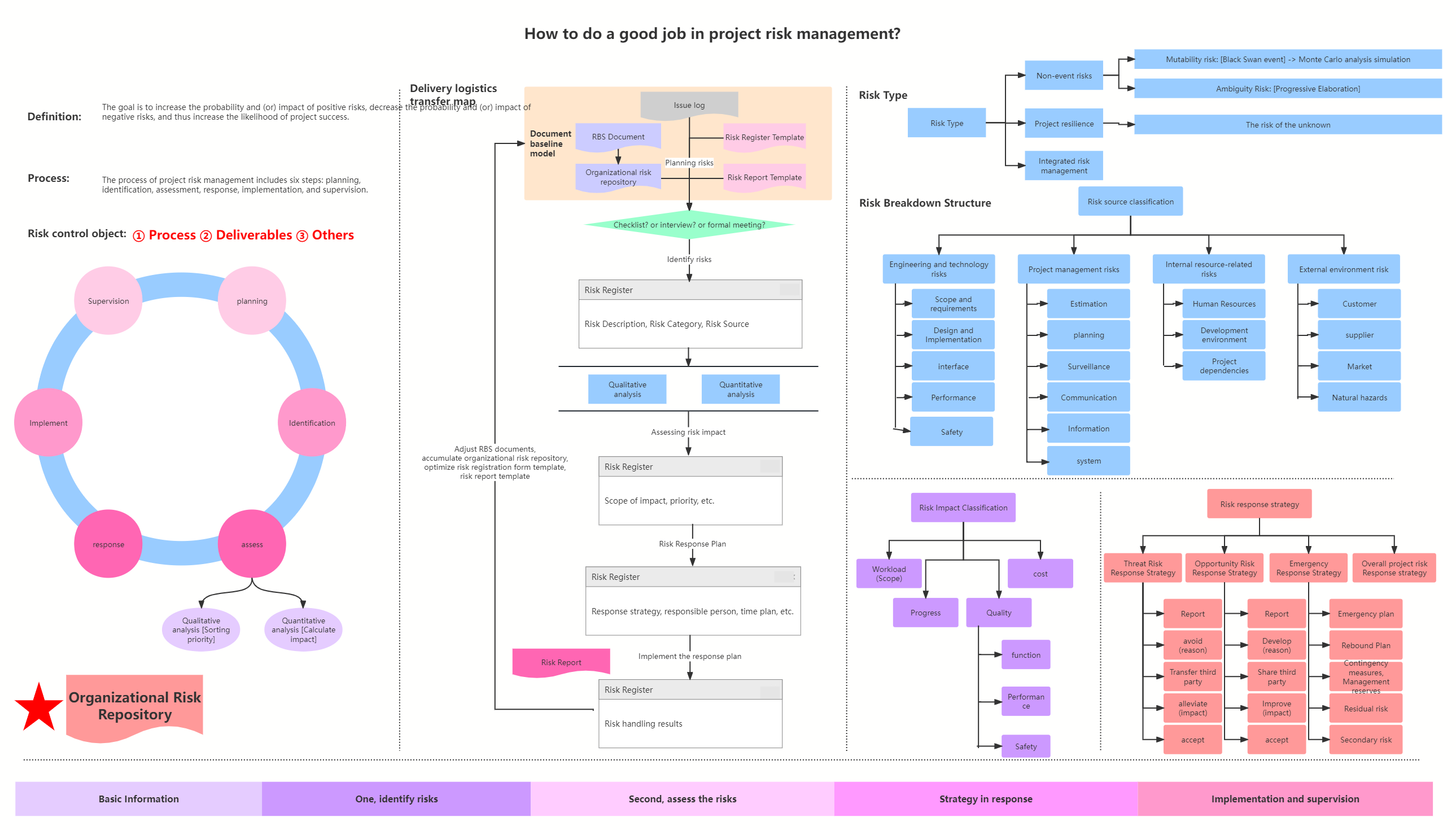
Project Risk Management | Click here to go directly
Project schedule management is a process of continuous improvement. By constantly summarizing experience and lessons learned, the management level of future projects can be improved.
· Post-project evaluation : Conduct a comprehensive evaluation after the project is completed to summarize the successes and failures. The post-project evaluation should include analysis of project goal achievement, budget control, time management, and team collaboration.
Feedback loop : Establish a feedback mechanism to collect opinions and suggestions from team members and stakeholders in a timely manner. The feedback mechanism can be carried out through regular meetings, questionnaires, and one-on-one interviews.
Improvement measures : Based on the feedback and evaluation results, formulate and implement improvement measures to optimize the project management process. The improvement measures should include specific action plans, responsible persons and time nodes.
Effective communication is the guarantee for successful project schedule management.
· Communication plan : Develop a communication plan to clarify the frequency, method and content of communication to ensure timely communication of information. The communication plan should include arrangements for internal and external communication to ensure that all stakeholders can obtain the information they need.
Regular meetings : Regular project meetings are held regularly to discuss project progress, existing problems, and next steps. Regular meetings can be held in the form of daily stand-up meetings, weekly meetings, and monthly summary meetings to ensure timely sharing of information and timely resolution of problems.
· Reporting system : Establish a regular reporting system to ensure that all relevant parties are informed of the latest progress of the project. The reporting system should include progress reports, financial reports, and risk reports.
The success of a project lies not only in planning but also in execution.
· Implement the plan : Strictly execute tasks according to the project plan to ensure that each link is completed on time. Implementing the plan requires the cooperation and support of team members to ensure the smooth completion of the task.
Performance management : Monitor the performance of team members through performance management tools and methods, and provide timely feedback and guidance. Performance management can adopt methods such as KPI (key performance indicators) and OKR (objectives and key results) to motivate the enthusiasm and creativity of team members.
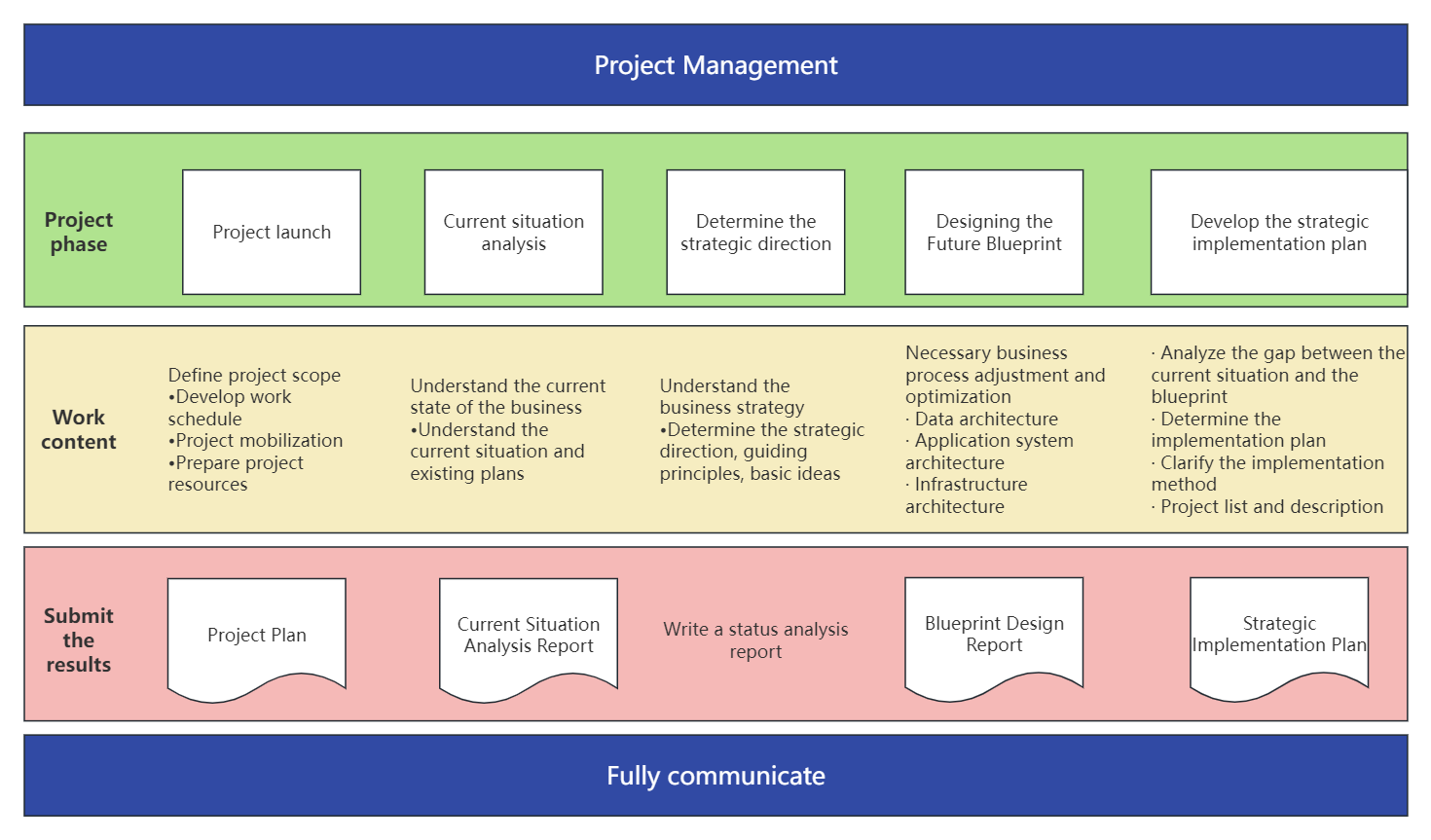
Project Management Process | Click here to use it directly
It is inevitable to encounter various changes during the project process. The key is how to deal with them effectively.
· Change control process : Establish a change control process, evaluate the impact of changes on project progress, and adjust the plan in a timely manner. The change control process should include four steps: change application, change evaluation, change approval, and change implementation.
· Flexible response : Maintain flexibility and adjust resource allocation and task arrangements according to actual conditions to ensure that the project is completed on time. Flexible response requires project managers to have good adaptability and decision-making ability to adjust project plans in a timely manner to ensure the achievement of project goals.
Project schedule management is a systematic, complex and dynamic work that requires the joint efforts of project managers and team members. By setting clear goals and scope, developing detailed project plans, allocating resources and responsibilities, monitoring and controlling progress, using project management software, risk management, continuous improvement, effective communication and responding to changes, you can effectively manage the project schedule to ensure that the project is completed on time and achieves the expected results.
Project schedule management is not only a technical job, but also an art. It requires project managers to have good communication, coordination and decision-making skills. Through continuous learning and practice, project managers can improve the level of project schedule management and lead the team to achieve project success. Effective project schedule management can not only improve the success rate of the project, but also enhance the cohesion and combat effectiveness of the team, laying a solid foundation for the long-term development of the organization.